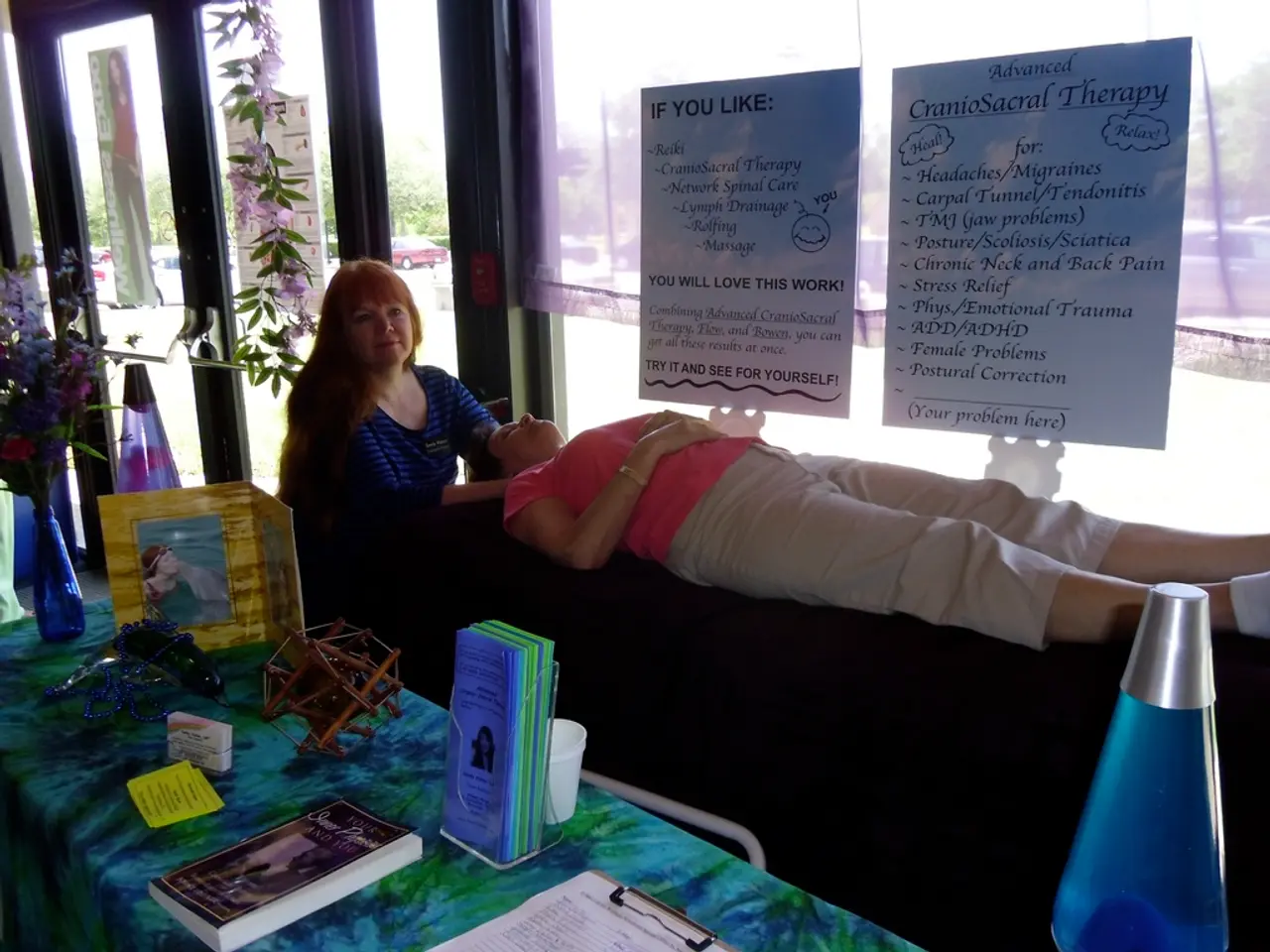Symptoms, effects, and cures for Anxiety Disorders
In the realm of mental health, anxiety disorders are a common condition affecting millions of adults in the United States. This article aims to provide a comprehensive overview of these disorders, their symptoms, and potential treatment options.
Anxiety disorders do not cure the condition, but they can help reduce symptoms. One of the most common methods for managing anxiety is psychotherapy, which involves confidential sessions with a therapist. Through these sessions, individuals can gain a better understanding of where their anxiety originates and learn strategies to move forward.
Anxiety can manifest in various ways, causing physical symptoms such as sweating, shaking, a rapid heartbeat, fast or shallow breathing, dizziness, muscle tension, digestive symptoms, tiredness, and can even lead to panic attacks. Panic attacks can cause symptoms such as heart palpitations, trembling, sweating, feeling short of breath, a choking sensation, a feeling of being out of control or impending doom, feeling detached or disconnected from reality, having a fear of dying, nausea, or other symptoms of digestive distress.
The Diagnostic and Statistical Manual of Mental Disorders (DSM-5) lists several conditions as anxiety disorders. These include specific phobias, agoraphobia, generalized anxiety disorder (GAD), panic disorder, social anxiety disorder, separation anxiety disorder, selective mutism, substance- or medication-induced anxiety disorder, anxiety disorder due to another medical condition, other specified or unspecified anxiety disorder.
GAD involves persistent and excessive worry about a range of nonspecific events and situations, leading to difficulty concentrating, feeling on edge, irritability, fatigue, and difficulty sleeping. Separation anxiety disorder is a fear of leaving people one is attached to, and may cause excessive fears about their loved ones coming to harm, reluctance to leave them, overprotectiveness, nightmares, rumination on thoughts of being removed, and physical complaints.
Social anxiety disorder is a persistent fear of negative judgment, embarrassment, rejection, or offending others. Symptoms of social anxiety may include avoiding social events, public speaking, or performing, and finding it difficult to do tasks if someone is watching. Specific phobias are fears of certain objects or situations that are disproportionate to the threat the trigger poses.
Selective mutism is a disorder that causes an inability to speak in situations that involve performance, such as at school or work. Substance- or medication-induced anxiety disorder occurs when symptoms of anxiety arise as the direct result of using a substance or medication or during withdrawal. Anxiety disorder due to another medical condition describes anxiety that is the direct result of a health condition.
Agoraphobia is an excessive or irrational fear of two or more of using public transport, being in open spaces, standing in line or in a crowd, being outside of the home alone, being in enclosed spaces. If the subject of the anxiety is a romantic partner, the person may become highly dependent on them and prone to jealousy and codependency.
In children, symptoms of separation anxiety may include refusing to attend school or feeling anxious about sleeping at someone else's house. In adults, symptoms of separation anxiety may include feeling anxious at the thought of letting their children leave home.
If anxiety is affecting a person's physical health, it is important to speak with a doctor. Treatment options for anxiety disorders may include psychotherapy and medication. Other specified or unspecified anxiety disorder applies to people who experience clinical anxiety but do not meet the criteria for any specific disorder.
In conclusion, anxiety disorders are common mental health conditions that can significantly impact a person's life. Understanding the different types of anxiety disorders, their symptoms, and treatment options is crucial in managing and overcoming these conditions. If you or someone you know is struggling with anxiety, seeking help from a mental health professional is the first step towards recovery.
- Anxiety disorders may not cure the condition, but they can aid in managing symptoms effectively, such as reduced physical symptoms like sweating, shaking, and rapid heartbeat.
- The medical field, specifically in health-and-wellness and mental health, recognizes several anxiety disorders, including panic disorder, social anxiety disorder, and agoraphobia, as listed in the DSM-5.
- Psychotherapy, involving confidential sessions with a therapist, is a common method for managing anxiety, helping individuals better understand the roots of their anxiety and learn strategies to cope.
- If a person's social health is affected due to an anxiety disorder, seeking help from a mental health professional can be the first step towards recovery and coping strategies, such as managing specific phobias, overcoming selective mutism, or addressing agoraphobia.




